This article is reviewed by an expert
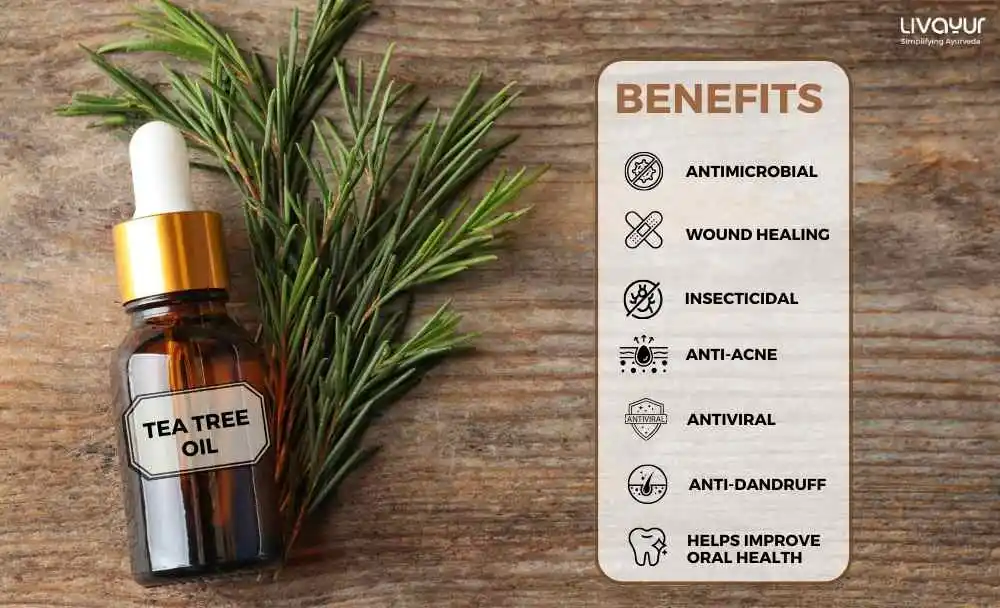
Are you familiar with the incredible benefits of tea tree oil?
This popular essential oil, also known as melaleuca oil, is derived from the native Australian plant called Melaleuca alternifolia. [1] It is widely used around the world as an alternative and complementary treatment for various ailments. You can easily find it in cosmetics, topical medicines, and household products, thanks to its numerous benefits of tea tree oil.
Let’s explore more about the extensive benefits of tea tree oil in this article and learn how to incorporate this incredible essential oil into our daily lives.
Benefits of Tea Tree Oil
1. Antimicrobial Properties [1]
Primary Benefits: Tea tree oil exhibits strong antimicrobial activity. It inhibits the growth of various bacteria, including Escherichia coli, vancomycin-resistant Enterococcus faecium, and Staphylococcus aureus.
Secondary Benefits: Additionally, tea tree oil also inhibits the growth of several fungi, such as Candida albicans and Cryptococcus neoformans.
2. Balsamic Properties [1]
Primary Benefits: Tea tree oil is rich in balsamic properties that help boost overall health.
Secondary Benefits: Moreover, tea tree oil helps enhance nutrient absorption and protects against several diseases.
3. Wound Healing Properties [3]
Primary Benefits: Tea tree oil is well known to promote quick wound healing.
Secondary Benefits: Additionally, it also protects wounds from infections and helps diminish scar marks caused by eruptions, boils, pox, and acne.
4. Expectorant Properties [9]
Primary Benefits: Rubbing tea tree oil on the chest has been shown to provide relief from cough, cold, congestion, and bronchitis.
Secondary Benefits: As a result, tea tree oil can be highly beneficial in alleviating various respiratory troubles associated with colds.
5. Insecticidal Properties [5]
Primary Benefits: Tea tree oil is known to be an efficient insect killer.
Secondary Benefits: Therefore, it helps repel parasites and insects like mosquitoes, fleas, lice, and flies when applied to the body.
6. Antiseptic Properties [1]
Primary Benefits: Tea tree oil serves as an excellent antiseptic.
Secondary Benefits: As such, it can be applied to wounds, boils, sores, cuts, insect bites, and stings to protect against infections.
7. Stimulant Properties
Primary Benefits: Tea tree oil stimulates hormone secretions, blood circulation, and the immune system.
Secondary Benefits: Additionally, it also acts as a protective shield against various types of infections.
8. Sudorific Properties [1]
Primary Benefits: Tea tree essential oil promotes sweating and the removal of toxins like uric acid.
Secondary Benefits: Furthermore, it also helps eliminate excess water and salts from the body and cleanses the pores.
9. Anti-Acne Properties [2]
Primary Benefits: The topical application of tea tree oil gel has been shown to significantly reduce the number of inflamed and non-inflamed lesions in patients with mild to moderate acne.
Secondary Benefits: As such, tea tree oil can help clear skin texture, reduce redness and swelling of acne lesions, and lower acne severity.
10. Cystitis Prevention [1]
Primary Benefits: A randomized trial found that oral administration of tea tree oil capsules effectively treats chronic idiopathic coli bacilli cystitis.
Secondary Benefits: As such, tea tree oil may help alleviate the pain, discomfort, and urinary symptoms associated with chronic coli bacilli cystitis.
11. Antiviral Activity [10]
Primary Benefits: Tea tree oil exhibits potent antiviral activity against herpes simplex virus (HSV) types 1 and 2.
Secondary Benefits: In addition, it also protects against viral infections like the common cold, influenza, mumps, measles, and pox.
12. Anti-Dandruff Activity [4]
Primary Benefits: Shampoos containing tea tree oil have been proven effective in treating mild to moderate dandruff.
Secondary Benefits: Consequently, tea tree oil can also help reduce flaking, itching, and scalp irritation that occurs due to dandruff.
13. Gingivitis Prevention [6]
Primary Benefits: Tea tree oil, like chlorhexidine, is known to be highly effective against gingivitis caused by Streptococcus mutans bacteria.
Secondary Benefits: As such, tea tree oil can help improve oral health and prevent gum diseases.
14. Head Lice Eradication [7]
Primary Benefits: Owing to compounds like phenols, phenolic ethers, ketones, and oxides, tea tree oil can significantly contribute to head lice eradication.
Secondary Benefits: As such, it can help boost overall scalp and hair health.
15. Dermatitis Treatment [8]
Primary Benefits: Tea tree oil is highly effective against dermatitis in dogs. A cream containing 10% tea tree oil has been shown to treat various forms of dermatitis in dogs, including chronic dermatitis, allergic dermatitis, interdigital pyoderma, and skinfold pyoderma.
Secondary Benefits: As a result, tea tree oil can help provide relief and improve the overall skin health of dogs.
How to Use Tea Tree Oil [11]
- As a skin care product: Tea tree oil may be used for topical application in the form of creams, lotions, shampoos, gels, and essential oil. But you must mix the oil with some carrier oil or moisturizer before applying. You may even mix the oil with your skin toner, or sunscreen. You may use a clean cotton swab dipped in the mix and apply it gently on the skin.
- As herbal mouthwash: You may mix a few drops of tea tree oil with water and rinse your mouth with it. This herbal mouthwash kills bacteria in the mouth.
- As a hair care product: You may mix tea tree oil into your shampoos for effective scalp and hair cleansing. Tea tree oil can keep your scalp healthy by removing dandruff.
- As a wound care product: You may increase the healing potential of your medicated ointments by mixing tea tree oil into it.
- As insect repellent spray or room freshener: You may put tea tree oil diluted with carrier oil or water in a spray bottle and use it as an insect repellent spray or a room freshener.
Tea Tree Oil Side Effects
Though there are many benefits of tea tree oil, there are side effects too. The main side effects of tea tree essential oil are discussed below.
- Tea tree oil should not be swallowed. Taking it orally can cause poisoning with severe symptoms such as ataxia (loss of muscle coordination), confusion, breathing issues, pneumonitis, CNS depression, and even coma. [12] [13]
- Most people can use topical tea tree oil products without problems. Still, some may experience contact dermatitis (a type of allergic skin rash) or skin irritation, pain, burning sensation, redness, swelling, and stinging. [12] [14]
- Little is known about whether tea tree oil is safe to use during pregnancy or while breastfeeding. Therefore, pregnant women and breastfeeding mothers must consult a doctor before using tea tree essential oil.
FAQs
1. Can tea tree oil be applied directly to your skin?
Tea tree oil, in some cases, may cause allergic reactions when applied topically. Therefore, you must avoid applying tea tree oil directly to your skin and must always dilute the oil with some carrier oil such as almond oil, coconut oil, or olive oil.
2. Can I use tea tree oil daily on my skin?
It is safe to use tea tree oil daily. However, individuals with sensitive skin might face allergic reactions. Therefore, one must do a patch test before applying tea tree oil
3. Can tea tree oil be used as a natural remedy for insect bites?
Yes, tea tree oil acts as an efficient insect repellent and can be applied to the body to repel and protect against mosquitoes, fleas, lice, and flies.
4. How long should I leave the tea tree oil on my scalp?
It is best to leave the tea tree oil on the scalp for not more than an hour.
5. Can tea tree oil be taken orally?
No, tea tree oil should never be taken orally as it has a poisonous effect if ingested.
Conclusion
Tea tree oil offers a wide range of incredible benefits that can positively impact your health and well-being. From its potent antimicrobial properties to its ability to promote wound healing and reduce acne lesions, tea tree oil proves to be a versatile essential oil. Its effectiveness against various conditions such as vaginitis, cystitis, dandruff, and gingivitis further demonstrates its therapeutic potential.
Disclaimer
The information provided here is for general information and is not meant to substitute any medical advice. Please consult your doctor for appropriate medical consultation.
References
- Pharmacological attributes and nutritional benefits of tea tree oil International Journal of Biosciences | IJB |
- Treatment of acne with tea tree oil (melaleuca) products: A review of efficacy, tolerability and potential modes of action
- WHAM evidence summary: effectiveness of tea tree oil in managing chronic wounds
- Treatment of dandruff with 5% tea tree oil shampoo☆
- Insect Repellent Properties of Melaleuca alternifolia
- Effectiveness of Tea Tree Oil and Chlorhexidine as Mouth Rinse in the Control of Dental Plaque and Chronic Gingivitis -A Comparative Study
- The effect of natural products on head lice: In vitro tests and clinical evidence
- Melaleuca oil (tea tree oil) dermatitis†
- Essential oils in the treatment of respiratory tract diseases highlighting their role in bacterial infections and their anti‐inflammatory action: a review†
- Antiviral activity of tea tree and eucalyptus oil aerosol and vapour
- Tea tree oil: a promising essential oil
- Safety assessment and adverse drug reaction reporting of tea tree oil (Melaleuca aetheroleum)
- Use of undiluted tea-tree oil as a cosmetic
- A review of the toxicity of Melaleuca alternifolia (tea tree) oil




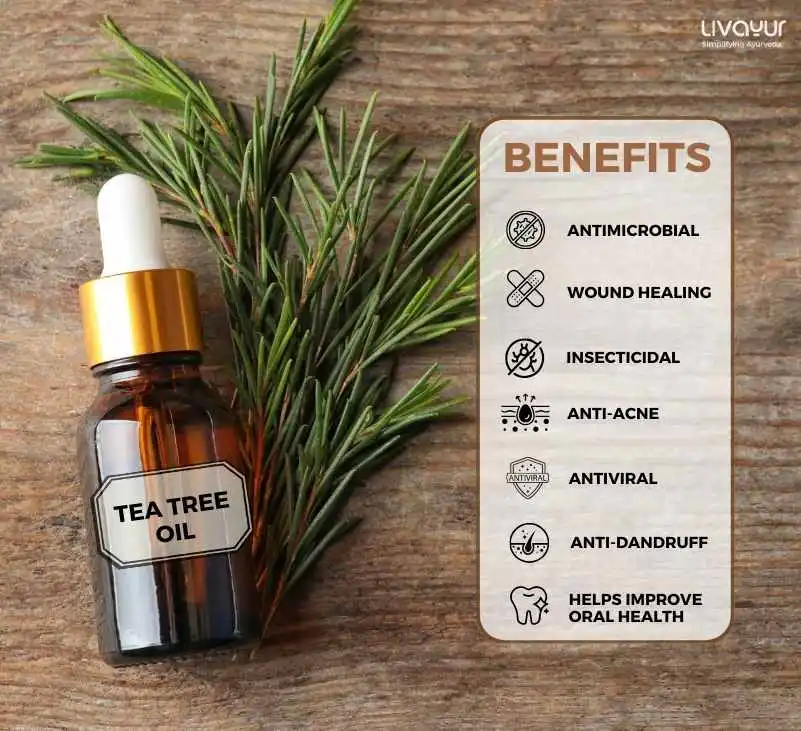







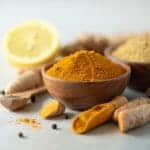



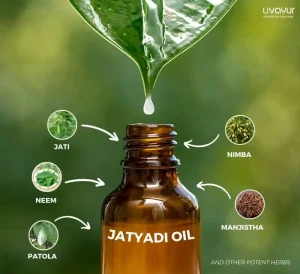

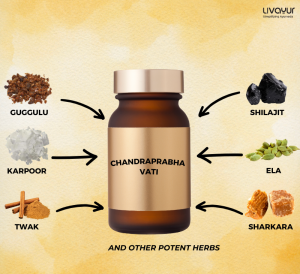



2 Comments